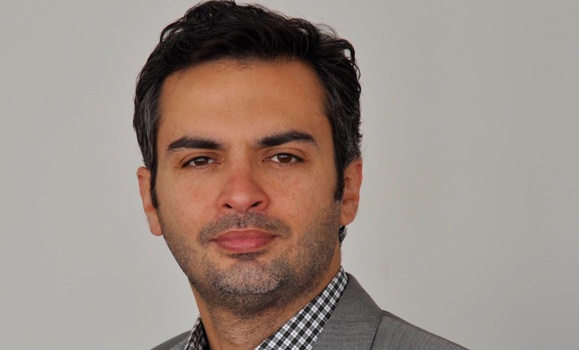News
» Go to news mainGet to know visiting scholar Pablo Holmes Chaves

In January 2020, Pablo Holmes Chaves arrived at the Schulich School of Law from his home country of Brazil to begin a term as a visiting scholar. Although COVID-19 has changed some of his plans, he’s decided to remain in Halifax until May and continue his research in the areas of constitutional law and political theory.
Holmes earned his JD and LLM at the Federal University of Pernambuco in Recife, Brazil and his PhD in sociology at Flensburg University in Germany. He is currently assistant professor of political theory at the Institute of Political Science and Law School Graduate Program at the University of Brasília, Brazil.
We talked to Holmes about his research, what brought him to Halifax, and what’s next for him.
Can you tell us more about your research?
Initially, my research focused on the areas of constitutional law and political theory. During my PhD in Germany, I became very interested in the ways that power has changed in the face of globalization and the transnationalization of the economy. I wanted to understand the emergence of new forms of authority, especially private forms of authority, in transnational regimes, and how these new phenomena constrained the classical understanding of law and politics and state-based constitutionalism.
When I moved back to Brazil and joined the University of Brasilia, in 2012, I continued to pursue this line of research, but I also became interested in the role of the judicial system in the 2014 political crisis. My current research is focused on this issue, specifically on public prosecutors in Brazil as an institution, and how their role has changed and evolved over the last two decades. They are a very influential force in politics, and have used their influence to advance their institutional empowerment and prerogatives, essentially becoming a kind of unaccountable superpower in the constitutional system.
Why did you want to come to Schulich Law?
I had always wanted to come to Canada, to know the country and experience the North American academic life. It happened that my life partner took a position as a Postdoctoral Fellow at Schulich Law and I was able to take a leave from teaching at my home institution. It was perfect that it worked out and I was able to come here for a couple of months.
Who are you collaborating with while you're here?
I was invited by Joanna Erdman and was just getting to meet people in the law school when the Covid-19 pandemic broke. My plan was to work with faculty members who have similar research interests - Richard Devlin and Olabisi Akinkugbe’s works share some interesting connections with mine. The self-isolation constraints have made it a bit more difficult to work with them, but I hope we can connect to exchange ideas in the coming months.
What are your future plans?
I want to finish the ongoing research I have been doing with Master and PhD students in Brazil on the initial outcomes of the “Car Wash” operation. I think we need to understand how legal officials mobilized and collectively organized within their institutional contexts to carry out such an ambitious political endeavor under the guise of protecting public interests.
Learn more:
Visit
Recent News
- Professor Elaine Craig ft in "2024: The year as told through some of Dal’s biggest stories"
- Associate Professor Olabisi D. Akinkugbe ft in "Idigbe Celebrates Father’s 100th Birthday with Commissioning of PAS World Centre"
- Preparing to Get LAWST AT SEA
- Assistant Professor Andrew Flavelle Martin cited in "Supreme Court of Canada Judgement re: Quebec (Attorney General) v. Pekuakamiulnuatsh Takuhikan"
- Associate Professor Jodi Lazare quoted in “Debate Continued in Senate, Bill to Amend Health of Animals Act – Fourteenth Report of Agriculture and Forestry Committee"
- Inspiring Kids to Believe that Caring Can Be Cool
- Professor Camille Cameron ft in "Can Big Oil be made to pay like Big Tobacco?"
- DLAS Community Legal Worker Mark Culligan ft in "91 residents of N.S. mobile home park file for return of 'unlawful' water charges"
